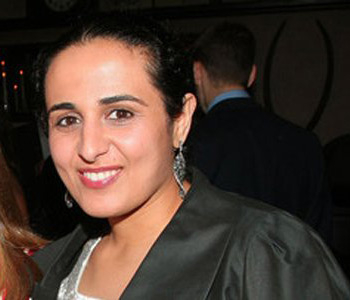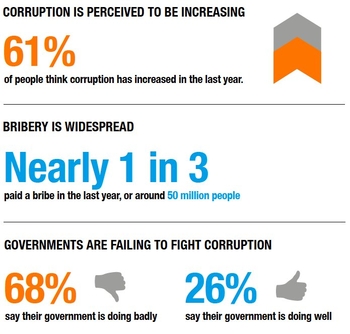The recent fall of Fallujah, Iraq, to an Al-Qaeda-linked group provides an unwelcome reminder of the American resources and lives devoted in 2004 to 2007 to control the city – all that effort expended and nothing to show for it. Similarly, outlays of hundreds of billions of dollars to modernize Afghanistan did not prevent the release of 72 prisoners who have attacked Americans.
 "The Islamic State in Iraq and Syria," formerly part of Al-Qaeda, just conquered Fallujah, Iraq. |
Water is running out. A dam going up on the Blue Nile in Ethiopia threatens substantially to cut Egypt's main water supply by devastating amounts for years. Syria and Iraq suffer from water crises because the Euphrates and Tigris rivers are drying up. Growing the narcotic qat plant absorbs so much of Yemen's limited water supplies that Sana'a may be the first modern capital city to be abandoned because of drought. Ill-considered wheat-growing schemes in Saudi Arabia depleted aquifers.
On the flip side, the poorly constructed Mosul Dam in Iraq could collapse, drowning half a million immediately and leave many more stranded without electricity or food. Sewage runs rampant in Gaza. Many countries suffer from electricity black-outs, and especially in the oppressive summer heat that routinely reaches 120 degrees.
 An artist's rendition of the Great Ethiopian Renaissance Dam now under construction. |
Poor schools, repressive governments, and archaic social mores assure abysmal rates of economic growth. Starvation haunts Egypt, Syria, Yemen, and Afghanistan.
Vast reserves of oil and gas have distorted nearly every aspect of life. Miniature medieval-like monarchies like Qatar become surreal world powers playing at war in Libya and Syria, indifferent to the lives they break, as a vast underclass of oppressed foreign workers toils away and a princess deploys the largest budget for art purchases in human history. The privileged can indulge their cruel impulses, protected by connections and money. Sex tourism to poor countries like India flourishes.
 Al-Mayassa bint Hamad bin Khalifa Al-Thani (b. 1983), sister of the emir of Qatar and chairperson of the Qatar Museums Authority, reportedly has about US$1 billion a year to spend on art. |
Islamism, currently the most dynamic and threatening political ideology, is summed up by a morbid Hamas declaration to Israelis: "We love death more than you love life." Polygyny, burqas, genital mutilation, and honor killing make Middle Eastern women the world's most oppressed.
Middle Eastern life suffers from acute biases – often official – based on religion, sect, ethnicity, tribe, skin color, nationality, gender, sexual orientation, age, citizenship, work, and disability. Slavery remains a scourge.
Conspiracy theories, political zealotry, resentment, repression, anarchy, and aggression rule the region's politics. Modern notions of the individual remain weak in societies where primordial bonds of family, tribe, and clan remain dominant.
 Alaa Hussein Ali (l) ruled the Republic of Kuwait for 6 days in August 1990 before the country was annexed to Iraq by Saddam Hussein (r). |
Middle Eastern states spend outsized amounts of their wealth on intelligences services and the military, creating redundant forces to check each other. They venture abroad to buy tank, ship, and plane baubles. They devote inordinate resources to chemical, biological, and nuclear weapons, and the platforms to deliver them. Even terrorist groups such as Al-Qaeda plot to acquire WMD. Cutting-edge methods of terrorism develop in the Middle East.
Economic and political failure creates large bodies of refugees; Afghans have made up the world's largest refugee population since the 1980s; Syrians now threaten to overtake them, sowing poverty and chaos in their lands of refuge. Desperate souls attempt to leave the region altogether for Western countries, with more than a few dying along the way. Those who make it bring their region's maladies to such tidy countries as Sweden and Australia.
Nineteenth-century diplomats dubbed the Ottoman Empire "the Sick Man of Europe." Now, I nominate the whole Middle East the Sick Man of the World. The region's hatreds, extremism, violence, and despotism require many decades to remedy.
While this process perhaps takes place, the outside world is best advised not to expend blood and treasure to redeem the Middle East – a hopeless task – but on protecting itself from the region's manifold threats, from Middle East Respiratory Syndrome (MERS) and harems to mega-terrorism and electromagnetic pulse.
Mr. Pipes (DanielPipes.org) is president of the Middle East Forum. © 2014 by Daniel Pipes. All rights reserved.
Jan. 24, 2014 updates: (1) A couple of readers correctly point out that my views on the Middle East align on this issue more with Obama than with Bush II.
(2) D. K.Milgrm-Heath has turned this article into a poem at "Oppression with War and Terrorism Go Hand in Hand."
Jan. 27, 2014 update: The remarkable Abdulrahman al-Rashed largely agrees with my assessment of the present but expresses optimism for the next generation in "Our children shouldn't grow up like us." Specifically, he takes hope from the European example:
Europe lived its final war and it was enough to conclude the series of wars. World War II terrified the victors and the defeated alike, and it was the end of destructive ideas. Our situation is similar. Europe has been through its religious wars just like we are living them today.
May 2, 2014 update: The U.S. Centers for Disease Control and Prevention Hours has reported the first case of Middle East respiratory syndrome coronavirus (MERS-CoV) in the United States.
The patient is a healthcare provider who had been working in Riyadh, the capital of Saudi Arabia, before boarding a plane to London on April 24, then flying to Chicago and taking a bus to Indiana. On April 27, the patient began to experience shortness of breath, coughing and fever, common symptoms of the MERS coronavirus. ... He has been isolated and is in stable condition.
Background: The first case of MERS showed up in Saudi Arabia in 2012 and has infected 262 people in 12 countries, of whom, 93 have died.
May 3, 2016 update: My article above somehow omitted to mention corruption. A new study from Transparency International, People and Corruption: Middle East and North Africa Survey 2016, covers this topic based on a survey of 10,797 adult respondents in nine countries and territories. A summary:
we find that 50 million adults in the region are having to pay bribes to access the basic services that they need. This is one of the findings from our survey, which aims to give a voice to ordinary citizens' views and experiences of corruption and help hold governments to account for their actions – or lack thereof – at stopping public sector graft.
In graphic form:

May 27, 2016 update: I also omitted mention of sexual abuse, which tends to be particularly suppressed in the conservative cultures of the Middle East.
Jan. 16, 2018 update: Ten percent of Egypt's population is addicted to drugs, twice the global rates.
